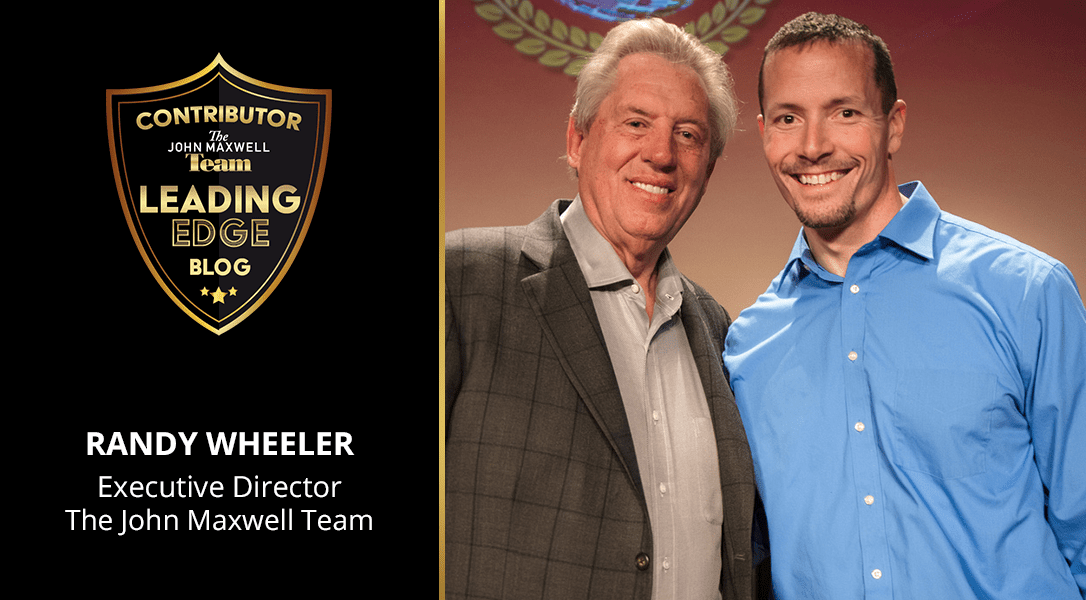The Leading Edge:
Developing an All-Star Team

By: Randy Wheeler
“Individuals play the game, but teams win championships.” John C. Maxwell
1992 and Barcelona. What is so significant about this year and place? This was the year the United States first sent their best basketball players to the Olympics. They sent NBA athletes such as Michael Jordan, Magic Johnson, and Larry Bird for the first time.
They had a clear goal–win the gold medal. With that in mind, they put together an all-star team. Now, having a talented team does not guarantee success. There are certain traits that need to be present to help them work well as a team. I have worked with teams for a while, and, this summer, I was reminded of a book by Patrick Lencioni called The Ideal Team Player, so I read it and learned three traits he suggests should exist in a team player: humility, hunger and people smarts.
I wonder if that is what Chuck Daly was trying to create. A dozen superstars on the court that had to put aside their own egos to serve the country and seek to attain a common goal. So, this begs the question: Can we develop these qualities in other people? Similar to how a muscle only grows when it has been put under tension for a period of time, in order for any of us to grow or change, we must enter into situations that stretch us. The right situations will reveal if we are team players.
How can we see if someone is humble? Put the individual in a situation where they may not easily achieve success and watch. Do they blame others when the expected results do not occur? Do they want all the praise for successes? If they are humble, they will accept responsibility for failures and give credit to the team for successes.
How do we know if someone is hungry? Watch and listen to the individual. What do they talk about more than anything else? This is most likely what drives them. Let me illustrate. When I have coached some 10- to 12-year-olds, they want to have fun, and that is obvious in how they approach practice and games. Now, when I have coached 17- and 18-year-olds, they want to win a championship, which brings a greater intensity to practice and competition. I can see what they are hungry for by their focus and effort. When someone is focused and giving tremendous effort, they are hungry. If a person on your team spends more time talking about a fantasy sports league than the project you are working on, then you know they are not hungry for the project to be accomplished.
How do we know if someone is smart with people? Leadership expert John Maxwell provides clarity to this idea of being smart with people in his book Everyone Communicates, Few Connect. He describes this as connecting which is “the ability to identify with people and relate to them in a way that increases your influence with them.” Eat a meal with people and observe who the smart connectors are. Do they spend more time talking or asking questions and listening? Are they tuned into others even if they are quiet, or are they in their own world with their eyes fixed on their phone? A smart team player will be constantly connecting.
As we observe whether or not a person is humble, hungry, and a smart connector, we then can help them grow by respectfully showing the individual where he or she falls in these areas. One of the best ways to increase your credibility and help cultivate these traits in others is to model them personally.
So, are you humble, hungry, and smart? Will people want you as part of their team? Do you add value to the team or take away from the team? What is one growth step to help you be a better team player? Do you need to get feedback from others? How can you help your team develop these qualities?
Throughout his professional career Randy has helped individuals and teams work toward reaching their goals and developing as leaders where they are. He is an Executive Director and member of the President’s Advisory Council with the John Maxwell Team and has a Masters in Organizational Leadership which he uses to help individuals develop their personal and professional leadership skills in a way that will increase their impact among their colleagues, friends, and family. He lives in Fishers, Indiana with his wife and three sons.
You can learn more about Randy and his business at www.wheelercoachingsystems.com
